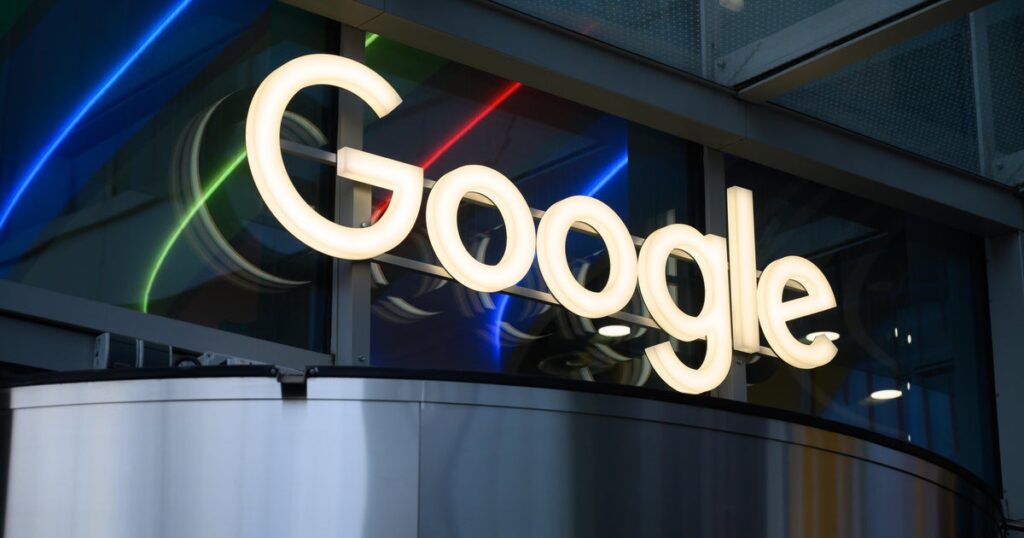A federal judge has once again labeled Google an abusive monopolist, marking the second such incident in under a year. This ruling was made due to the company’s illegal use of its online marketing technologies to inflate profits for its vast internet empire, now valued at $1.8 trillion.
The decision, delivered by U.S. District Judge Leonie Brinkema in Virginia on Thursday, follows a ruling from August that determined Google’s search engine was unlawfully exploiting its market dominance to hinder competition and innovation.
After the U.S. Justice Department targeted Google’s widely used search engine during Donald Trump’s presidency, it shifted its focus to the company’s profitable digital advertising network in 2023 under President Joe Biden, aiming to reduce Google’s power, which has grown since its founding in a Silicon Valley garage in 1998.
Even though antitrust regulators have achieved victories, the conflict is expected to persist for several more years as Google seeks to overturn these monopoly rulings through appeals, all while pushing forward in the promising field of artificial intelligence.
The next phase of the current case will involve penalties, likely starting late this year or early next. Additionally, similar hearings regarding the search monopoly case are set to commence on Monday in Washington D.C. Here, lawyers from the Justice Department will attempt to persuade U.S. District Judge Amit Mehta to impose extensive penalties, which may include a requirement for Google to divest its Chrome web browser.
Brinkema’s detailed 115-page decision examines the vast marketing system Google has cultivated over the last 17 years centered around its search engine and its other popular services, including the Chrome browser, YouTube, and Google Maps.
This system was predominantly formed through a series of acquisitions, beginning with Google’s purchase of online ad firm DoubleClick for $3.2 billion in 2008. Initially, U.S. regulators approved these acquisitions, only later realizing they had inadvertently allowed the Mountain View, California-based company to establish a platform for manipulating prices in a revenue-critical ecosystem relied on by numerous websites.
Lawyers from the Justice Department argued that Google has created and sustained dominant market positions in a trio of technologies instrumental for website publishers to sell ad space, advertisers to access their audiences, and ad exchanges that conduct rapid automated auctions to connect buyers and sellers.
After meticulously reviewing evidence presented during an extensive trial that concluded just before Thanksgiving last year, Brinkema ultimately rejected the Justice Department’s claims that Google mistreated advertisers, while agreeing that the company has abused its power, negatively impacting online publishers that depend on its network for income.
“For more than a decade, Google has linked its publisher ad server with its ad exchange through contractual measures and technological integration, allowing the company to solidify its monopoly power in these markets,” Brinkema stated. “Google further deepened its monopolistic hold by imposing anti-competitive policies on its customers and removing beneficial product features.”
Nevertheless, Brinkema also found that Google did not violate the law when it acquired DoubleClick, nor when it subsequently purchased Admeld. She noted that the Justice Department “failed to demonstrate that the acquisitions of DoubleClick and Admeld were anti-competitive,” adding that “while these deals aided Google’s monopoly power in two related ad tech markets, they are not enough, viewed in isolation, to prove that Google established or maintained its monopoly through exclusionary practices.”
This determination may assist Google in resisting any efforts to compel it to divest its advertising technologies to curb monopoly practices.
The Justice Department has not yet responded to the judge’s ruling.
In a statement, Google has announced plans to appeal the decision. Lee-Anne Mulholland, Google’s vice president of regulatory affairs, expressed, “We disagree with the Court’s ruling regarding our publisher tools. Publishers have numerous choices and select Google because our ad tech tools are straightforward, cost-effective, and efficient.”
Analysts like Brian Pitz of BMO Markets had anticipated that Google would probably lose the case, preparing investors for the latest setback for the company and its parent, Alphabet Inc., whose stock fell by 1% in midday trading. Alphabet’s shares have dropped by 20% this year.
Similar to the search monopoly case, Google and Alphabet firmly denied the allegations from the Justice Department. Their lawyers contended that the government largely relied on an outdated concept of a market that existed a decade prior, overlooking a fiercely competitive advertising market that includes rivals such as Meta Platforms, Amazon, Microsoft, and Comcast.
The market as outlined in the Justice Department’s case failed to account for ads on mobile applications, streaming television services, and other platforms gaining user attention, prompting Google attorney Karen Dunn to describe the government’s market definition as a “time capsule with a BlackBerry, an iPod, and a Blockbuster card” during her opening remarks when the trial commenced last September.
During the trial, Justice Department lawyers highlighted the negative impact of Google’s alleged market dominance on news publishers. Witnesses from Gannett, publisher of USA Today and other newspapers, and News Corp., publisher of The Wall Street Journal, discussed challenges they encountered and what they claimed was a lack of alternatives to Google’s advertising technology. These companies rely on online ads to support their news operations and provide free access to their articles for web users, as government lawyers have pointed out.
Now, the government is positioned to potentially dismantle that complex ad system. When the case was filed over two years ago during the Biden administration, the Justice Department stated that Google should at least be compelled to divest its Ad Manager product, which encompasses the technology utilized by website publishers and the ad exchange.


